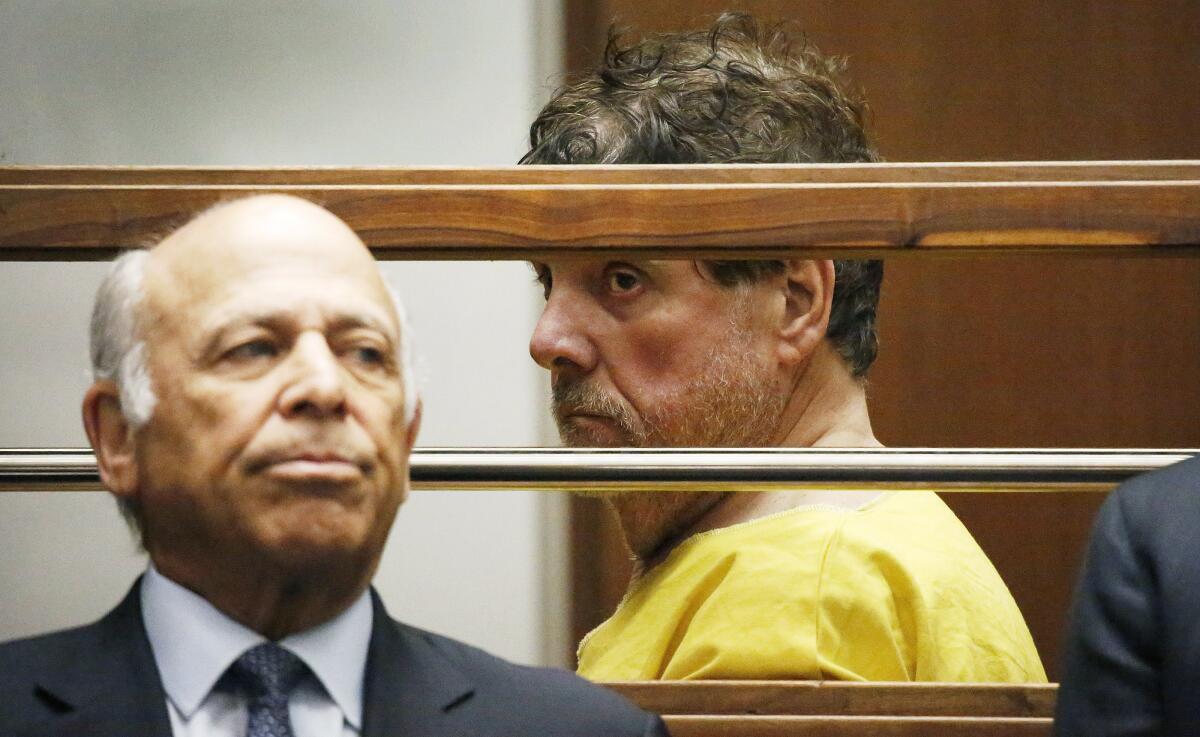Judge signals his approval of landmark USC settlement to ex-gynecologist’s patients

- Share via
A federal judge in Los Angeles said Monday that he would give final approval to USC’s landmark $215-million class-action settlement with former patients of Dr. George Tyndall, the campus gynecologist who has been accused of a decades-long pattern of sexual abuse and misconduct.
U.S. District Judge Stephen V. Wilson said he “was inclined to accept” the settlement, a decision that, barring any appeals, would clear the way for USC to start writing checks to approximately 18,000 women who saw Tyndall during their time at the university.
Finalizing the settlement closes the door to a large portion of USC’s legal exposure, but it does not end the institution’s mounting costs related to the Tyndall scandal. The university’s handling of the student health doctor, first exposed by an investigation by The Times, sparked a Department of Education probe and prompted more than 600 plaintiffs to file state court lawsuits that are still pending.
Records unsealed in the federal case showed that USC’s contracted medical experts concluded that Tyndall’s pelvic exams were inappropriate and not within medical standards, and that he had “unusual and potentially dangerous opinions about breast exams.” Nevertheless, the university quietly cut ties with the physician and neglected to report him to state regulators until months later.
For the federal settlement, the payouts to each patient will come in tiers starting with a guaranteed minimum of $2,500 to all women, regardless of whether they formally accused Tyndall of harassment or assault. If women choose to confidentially detail their allegations against Tyndall, they could be eligible for a payment of up to $250,000.
During the brief hearing Monday, Wilson said he favored appointing retired federal Judge Irma Gonzalez to lead a three-person panel that designates the money awards in tandem with an expert gynecologist and a psychologist. No one would be allowed to appeal that panel’s decision, the judge added.
It’s unclear when Wilson would file his formal approval of the settlement.
USC said in a statement after the hearing that it was “pleased with the court’s decision.” The statement added: “This settlement provides respectful and confidential relief to Tyndall patients at the student health center and formalizes a broad array of campus reforms.”
Annika Martin, one of the lead attorneys representing women in the federal case, said the lack of any objections from Tyndall’s former patients and the large participation rate were an endorsement of the settlement.
“We tried very hard to get this right,” Martin told The Times in an interview. “It looks like something that many class members found to be a safe way to stand up and be counted and hold the school accountable.”
Under the approved terms, Tyndall, who turned 73 on Monday, will not contribute to the payout, nor will he admit liability or wrongdoing. He has been charged by the Los Angeles County district attorney’s office with 29 felony counts related to sexual abuse and misconduct with 16 patients. He has pleaded not guilty and is free on bond while the case is pending in Los Angeles County Superior Court.
Tyndall has maintained that his exams were medically appropriate. After court Monday, one of his attorneys, N. Denise Taylor, said that her client denied wrongdoing.
Wilson, the judge overseeing the federal case, granted preliminary approval to the settlement in June. More than 10,000 former patients received notice about the settlement. Notices also went to 150,000 women who attended USC from 1989 to 2016 who were identified as potential class members in the settlement. Since then, attorneys and their staff have worked to verify who is eligible for a money award.
Ultimately about 800 people opted out of the settlement, according to court records. Of those, about 600 are part of the separate lawsuits in state court. Those cases are in discovery, with attorneys questioning current and former USC nurses, administrators and medical assistants about what they knew about Tyndall.
Mike Arias, an attorney who is helping to lead the state court lawsuits, predicted that many people who were part of the class-action settlement would be disappointed later because the maximum award — $250,000 — still “highly undervalued” their cases.
“At the end of the day, this was a tool used by USC to limit the number of overall claims,” Arias said. “USC accomplished what it wanted to accomplish.”
In addition to the $215 million, USC has agreed to pay up to $25 million in legal fees and other costs to the attorneys representing former patients. Wilson, the judge, will have to approve any payment of legal fees.
More to Read
Sign up for Essential California
The most important California stories and recommendations in your inbox every morning.
You may occasionally receive promotional content from the Los Angeles Times.











